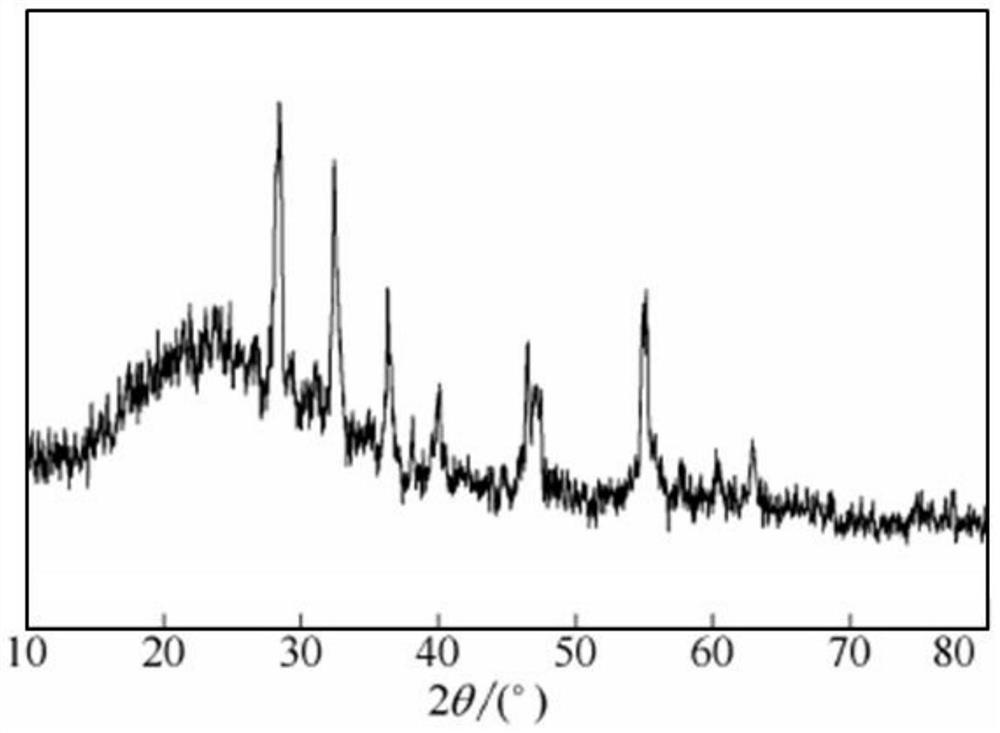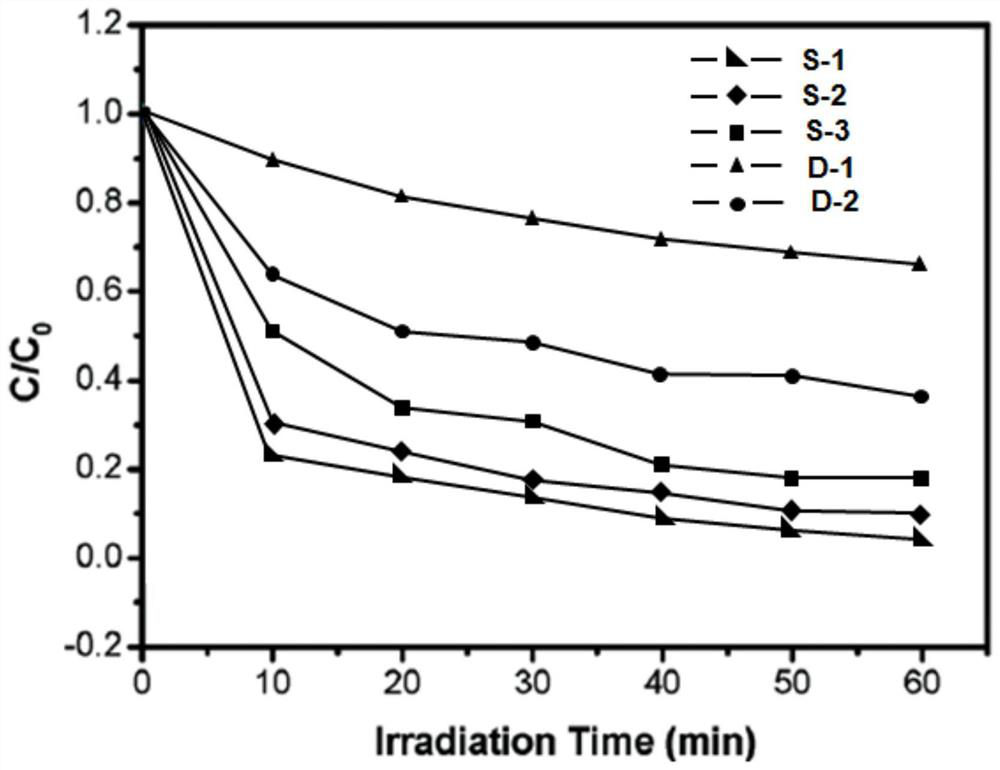A nitrogen doped nano cos 2 Preparation method and application of graphene photocatalytic material
A photocatalytic material and graphene technology, applied in the field of photocatalytic degradation of organic pollutants, can solve problems such as improving photocatalytic efficiency, and achieve the effect of improving electronic conduction efficiency, large application potential, and reducing band gap.
- Summary
- Abstract
- Description
- Claims
- Application Information
AI Technical Summary
Problems solved by technology
Method used
Image
Examples
Embodiment 1
[0029] (1) Disperse 0.2g of graphene oxide in a mixed solution of 20ml of deionized water and ethanol, and ultrasonically disperse for 30 minutes to obtain a uniformly dispersed graphene oxide dispersion;
[0030] (2) Dissolve an appropriate amount of cobalt nitrate in deionized water, stir and dissolve to obtain a 0.3mol / L cobalt salt solution;
[0031] (3) Dissolve an appropriate amount of 2-methylimidazole in deionized water, stir and dissolve to obtain a 1mol / L 2-methylimidazole solution;
[0032](4) Mix the solutions obtained in the above steps (1), (2) and (3), the molar ratio of cobalt salt and 2-methylimidazole in the obtained mixed solution is 1:3, after ultrasonic dispersion for 30 minutes, at 40°C Magnetic stirring was performed for 6 hours, and the resulting product was centrifuged, washed with deionized water and ethanol several times, and dried to obtain the ZIF-67@graphene oxide composite;
[0033] (5) Put the ZIF-67@graphene oxide compound prepared above into ...
Embodiment 2
[0035] Adjust the amount of graphene oxide added so that the final photocatalytic material contains CoS 2 The mass ratio to graphene is 3:1, other conditions are the same as in Example 1, and the obtained photocatalytic material is marked as number S-2.
Embodiment 3
[0037] Adjust the amount of graphene oxide added so that the final photocatalytic material contains CoS 2 The mass ratio to graphene is 1:2, other conditions are the same as in Example 1, and the obtained photocatalytic material is marked as number S-3.
PUM
 Login to View More
Login to View More Abstract
Description
Claims
Application Information
 Login to View More
Login to View More - R&D
- Intellectual Property
- Life Sciences
- Materials
- Tech Scout
- Unparalleled Data Quality
- Higher Quality Content
- 60% Fewer Hallucinations
Browse by: Latest US Patents, China's latest patents, Technical Efficacy Thesaurus, Application Domain, Technology Topic, Popular Technical Reports.
© 2025 PatSnap. All rights reserved.Legal|Privacy policy|Modern Slavery Act Transparency Statement|Sitemap|About US| Contact US: help@patsnap.com


